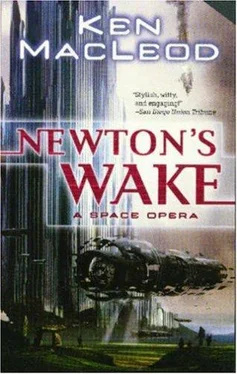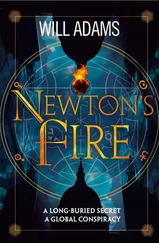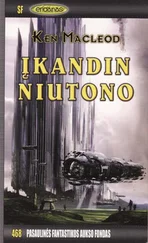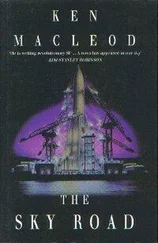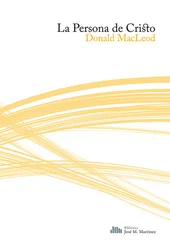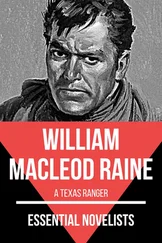‘Of course,’ said Dok Gil. After they’d settled the fare and the formalities he escorted her to the local office of Shipyard Twenty-Nine, where a smiling woman called Shipyard Twenty-Nine Sun gave her a complimentary slate pre-loaded with details of the self-reliance ship, as they called it. Poking about in the slate, she quickly recognised the sources for the new ship’s features in certain posthuman devices and materials the Carlyles had sold to a DK trading collective many years back. Reverse-engineered it might be, but self-reliant it was—not even the Knights could have done this—at least not without spending decades sweating out the implications of every step—instead, well, boldly going … She tried to imagine the likely development path, and shuddered. Then she looked at the price list—a set of alternative possible baskets of posthuman tech, all of it prohibitively difficult to salvage, and a bottom-line figure in AO dollars which looked like some didactic example of giving an astronomical distance in furlongs—and shivered again.
‘Thank you, Mrs Shipyard Twenty-Nine,’ she said. ‘Your family may be hearing from my family.’
‘I shall look forward to it. Please have some more tea.’
The journey home took a couple of days of FTL travel to reach the nearest world in the Drift, followed by hours and hours of tedious slog through gates across the skein. It was like going through arrivals at a spaceport, again and again: a nightmare about corridors, a nightmare about crowds. Worlds where there was more than one gate, and where the gates going to different places were within convenient distance of each other, were a minority in the skein, and therefore chokepoints: a term whose meaning became fairly literal after the third or fourth. Travellers, traders, refugees, merchants, exploration teams in their space suits; search engines, trains of low cargo containers trundling along; the frustrating waits while build-ups cleared; the nausea of constant changes in gravity, time of day, light spectrum, position above or below ground; it all wore you down, it gave you gate-lag. At the customs posts the Carlyle firm’s enforcers nodded her through as soon as her palm-print and retinal scan confirmed her identity, but she had to queue like everybody else. More than once she strode confidently through a gate to find herself only that many steps from where she’d started, and had to walk back around it and wait minutes or hours until the passage of other people, or other information, through the unpredictable fluxes of the skein had untangled whatever CPC violation had been about to kick in.
At last she was back at the planet from which her team set out, Rho Coronae Borealis d. Terrestrial; never terraformed, it was in the class informally known as a ‘heavy Mars’: 0.9 g with a bleakly beautiful landscape of wind-sculpted volcanic rocks and contorted pinnacles, sulphur-yellow, rust-red, warmer than it should have been under a fine yellow G0 sun at 4AU because of the greenhouse effect of its thin carbon dioxide atmosphere. Under sheet-diamond domes so high as to be visible only as a cobweb-faint tracery across the sky, its cities basked in a permanent temperate summer.
Welcome to New Glasgow. Failte gu Glaschu Ur . The sign had never meant so much. Carlyle staggered out of the gate complex on to the main concourse. People with somewhere to go streamed off, people with someone to meet them stood and hugged or shook hands, depending. The usual drift and flotsam of refugees from distant skirmishes silted up the benches and corners, scavenging for scraps—waste paper, wrappings, food, anything—which they fed into tiny portable drexlers and patiently cooked into meals and clothing. They haunted the bright windows of the terminal’s housing and labour exchanges, eyed up the designs in the malls for later crude pirating. The air smelled of sweat and deodorant and coffee grounds. It was late afternoon, and felt like it. Carlyle scanned the crowd anxiously, hoping that her name had travelled through the skein faster than she had, and that it had reached her family and not the news services.
Amelia Orr, smart in a new business suit, slim and young in a new body, shouldered out of the crush at the greetings barrier and gave Lucinda a stiff handshake and sudden hug.
‘Glad tae see ye back.’ She smiled in that unguarded way she had that would soon give her new wrinkles. ‘For aw that ye’ve killed me twice.’
‘You were in the ship?’
‘And the search engine. So I’m telt.’
‘Aw, shit, sorry. Uh, you’re looking well.’
Her great-great-grandmother preened hair and blouse for a moment. ‘Aye, well, I suppose it was about time for a retread anyway … no that I’m letting you off the hook on that, mind. And I must say, you’re looking absolute shite yourself.’
‘I’ve had a long day,’ said Lucinda.
‘So ye have,’ said Amelia, more kindly. ‘Come on, let’s see ye a cab. And what’s that ye’re wearing? Tin Man outfit?’
‘It’s a space suit,’ said Lucinda. ‘Eurydicean, you saw them when—ah, fuck, sorry.’
‘Your mouth needs a wash and aw.’
As she followed Orr’s beeline to the Carlyle’s limo stand—cab, indeed!—Lucinda reflected that there was no doubt who was now top dog in the team. She would have to do something about that, she thought, comforted by the pressure of her fingers gripping very firmly the DK starship slate.
No time for more than a shower, a change of clothes—drexler-fresh jeans and top—and a quick dinner before going to meet the boss. Lucinda was dreading it. Over dinner Amelia avoided the subject, preferring to dwell—rather tactlessly, Lucinda thought—on amusing contretemps resulting from her resurrection from a backup taken a couple of months earlier. By the time the limo picked them up again Lucinda could barely keep her knees from rattling.
The inner-system superjovian Rho Coronae Borealis b, currently an evening star, glowed like ten Venuses in the west above the garden as Lucinda and Amelia walked up the drive of the Carlyle mansion. The fast tiny moons, Bizzie and Lizzie, played tortoise and hare with the stately progression of orbital factories and habitats. The enforcers on the door gave the two women a polite up-and-down appraisal and a retinal scan. Heels clicked down a long tiled hallway, sank centimetres into the hush pile of the drawing-room carpet. Flowers and cigars on the air, mahogany tables, leather armchairs, hologram fire.
‘Good evening, ladies.’ Ian Carlyle unfolded himself from the depths of one of the chairs. The other two men in the room—Lucinda’s brother Duncan and distant cousin Kevin—sprang up with more alacrity. She nodded perfunctorily at them, her attention focussed, as it had to be, on the boss.
‘Have a seat, have a dram,’ he was saying, ushering them, whisking away their shawls, kissing hands and passing glasses in the same fluid sequence of moves. Every major planet in the Drift had one of the old guard in charge, and Ian was older than most. He looked it, too: he’d agestabilised at about fifty, and his face and body carried the scars of centuries of attrition like medals. His swept-back hair was white, his eyebrows—meeting in the middle, one of the genetic tracers for the male members of the clan—were black. He’d never risked rejuvenation, certainly never checked in for a backup and resurrection; it was rumoured that he feared death, having some savoury remnant of a Presbyterian conscience with a lot on it. In the old days on Earth he’d been one of the family’s lawyers, the first son of old Donald Carlyle to go to university when the firm was going legit in the early 21st. His dialect was pure standard American, with the Anglo-Scottish accent of upper-middle-class Edinburgh.
Читать дальше
